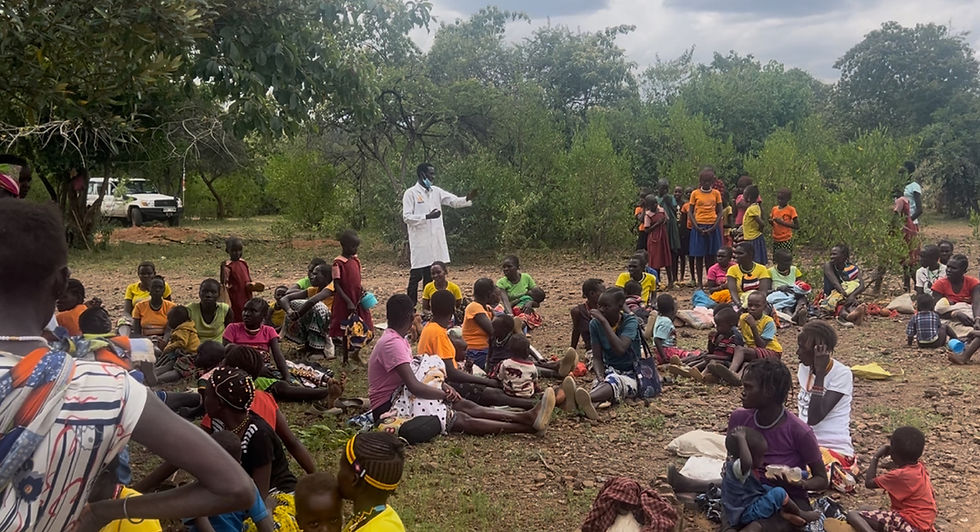Ensuring Continuity of Care for all Health Problems During the COVID-19 Pandemic
- Sarah Weihl
- Oct 21, 2021
- 2 min read
Updated: Nov 24, 2021
As talk of universal COVID-19 vaccine booster shots swirl in the US, here in Kenya we are hearing very different stories. In the US, surplus vaccines lie in wait for the vaccine hesitant to make the choice to take them - here, government employees working in health care are still unable to get vaccinated due to supply shortages. The never-ending news cycle pushing out stories about COVID-19 has overshadowed all other global health issues in the last year and a half. This coverage has left many other important global health issues out of the conversation - depriving them of both the attention and resources needed to adequately address them.
As the US public health community talks of little else, public health workers in Kenya, while concerned about COVID-19, continue focusing energy and resources on diseases like visceral leishmaniasis (VL) (which is 95% fatal if not treated). This focus is rooted in the needs of the communities here. When it comes to health care, nothing is more important than listening to the needs of the patient - and ACCIH and its partners have done just that. By continuing mobile clinics and attending to all health issues, no matter how small, ACCIH has built trust with the community. This trust is crucial to providing impactful services.
While COVID-19 has reshaped health care as we know it, it has not changed the way that ACCIH runs its mobile clinics (other than the addition of masks). At integrated outreach clinics, staff attend to patients seeking treatment for anything from back pain to malaria to VL. In August, three clinics were held at different remote locations over the course of three days. Over 1,400 people participated in health education forums and almost 800 people received medical treatment.
Many residents in Chemolingot and the surrounding areas (where ACCIH works on VL) have managed to get through this last year and a half without being touched by COVID-19. These communities have remained isolated in a way that has kept them largely protected against COVID-19 infection. Life has remained unchanged for many of these individuals - their work as pastoralists has not been interrupted and their health concerns largely center around non-COVID-19 related issues. At the August outreach clinics, 94 individuals were screened for malaria (a common and serious issue in the area) – 31 tested positive and were given treatment.
While COVID-19 is certain to remain a pressing issue for all countries, it is important to remember that other health issues also deserve attention. The public health community and media can learn from community-based organizations like ACCIH who have continued their non-COVID-19 related work throughout the pandemic, despite low local vaccination rates. COVID-19 isn’t going anywhere - and while ensuring equitable distribution of vaccines is a crucial issue that must be addressed, we must also ensure that other important public health issues are not ignored.




Comments